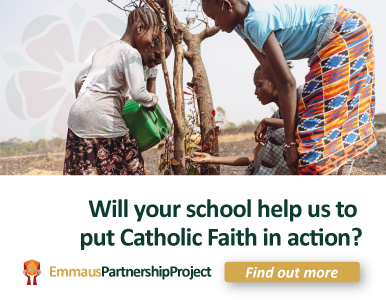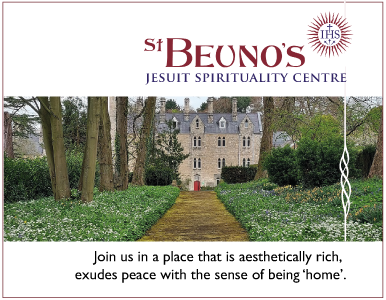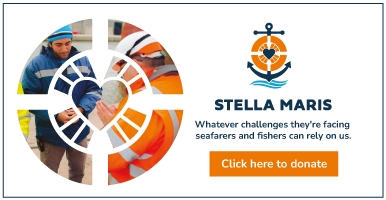Sorry, no records were found. Please adjust your search criteria and try again.
Sorry, unable to load the Maps API.
We live in a world where some of our most vulnerable brothers and sisters pay as much as 22 per cent of their income to get clean water from street vendors. Eight million Ugandans lack access to clean drinking water and a further 27,000,000 lack proper sanitation facilities.
Uganda’s poverty levels have risen sharply as a result of the Covid 19 pandemic, reversing many of the economic gains made in the last ten years. According to the country’s Finance Ministry, poverty stood at 18 per cent before the pandemic but now stands at 28 per cent.
These are just some of the issues being addressed by a ground-breaking partnership project between Catholic schools in the Diocese of Clifton and humanitarian organisations working in Africa.
Led by Stephen Whelan, Mission, Ethos and Charity Lead of St Edward’s RC SEMH School in Hampshire, The Emmaus Partnership Project is working to alleviate water and sanitation problems and develop tree planting in Masaka District, South-West Uganda.

Our Mission
As teachers in Catholic schools, we believe passionately in the collective integrity and power of young people; a power that can be harnessed to help solve some of our planet’s most pressing challenges. What we are doing in Uganda is more than a charitable venture. It is about living out the values of Fratelli Tutti and empowering children themselves to break the cycle of poverty and to tackle some of the effects of climate change. It’s about inviting other Catholic communities to work together on something that lives out in a practical way the very principles of Catholic Social Teaching. In short, it’s about Faith in Action.
Our partners
The Emmaus Partnership currently comprises the International Tree Foundation (ITF), the Masaka and District Land Care Chapter (MADLACC), a sustainable agro-forestry group in Uganda, WaterHarvest, a water charity based in Winchester and thirty-four Catholic Schools in the Diocese of Clifton.
What we have achieved so far
In the Spring of 2023, the Emmaus Partnership met with WaterHarvest, a UK based water charity with over 36 years of experience working with local partners in rural communities in India, Kenya, and Ghana to secure a clean sustainable source of drinking water. In April, based on a comprehensive baseline report of 23 schools in Masaka, Uganda, commissioned by the Emmaus Partnership and produced by Dan Kilimani, a water engineer based in Masaka, WaterHarvest signed agreements with the local partner, MADLACC and consultant engineer Dan Kilimani to manage and report back on the construction of four 20,000 litre water tanks in a pilot project at St Jude Primary School, Kayijja.
Following a successful outcome at St Jude Primary School, the project has progressed with seven schools now having on site access to water and a total of 33 tanks completed. The project to date has been funded and managed by WaterHarvest, including a 20% contribution from schools in the Clifton Diocese.
Notable changes to date
St Maria Gorreth School provides a good example of current needs. The school has 679 pupils and 20 staff and has been categorised as ‘critical’ in terms of water need.. It relies on two ageing 10k litre storage tanks that only provide an unreliable water supply sufficient for two weeks at the end of the rainy seasons. As a result, pupils have to take time away from lessons to fetch water from nearby sources or purchase water at high prices. They even had to resort to collecting urine in plastic cans to keep the school’s cherished tree nursery alive.
Dan Kilimani and Mathias Wakulira of MADLACC have already reported evidence of significant social, cultural and health related changes as a result of providing water harvesting technology at our first five schools. School rolls have risen and new staff have been appointed. Girls are now receiving an education for 5 days a week instead of being forced every month to stay at home because of a lack of sanitation. Work has been provided locally and families have been advised they can access the water for household use during the school holidays.

The future
One concrete and achievable way to break the damaging cycle of poverty in areas like Masaka District is to encourage the development of sustainable local economies that a combination of tree planting and clean water resourcing can bring about.
In a clear commitment to a preferential option for the poor, the Partnership is currently working to empower children in primary and secondary schools in Masaka District. The provision of ferro-concrete water harvesting technology in the twenty-three schools will enable the irrigation of school tree nurseries provided by ITF and MADLACC, and will help to meet the Water, Sanitation and Hygiene (WASH) needs of the schools.
ITF and MADLACC will provide saplings and then train pupils to plant, nurture and sustain trees in their school nurseries. The provision of trees that will address medicinal and dietary needs will help to supplement a poor diet and give communities a chance to develop sustainable economies. It will also tackle head-on some of the worst excesses of climate change which have been exacerbated by the proliferation of palm-oil trees in the area. The new trees will build climate resilience by eradicating non-native species in favour of those which have an environmental symmetry with that district.
What distinguishes The Emmaus Partnership project from similar attempts to alleviate chronic shortages of water in this part of Africa is the central role it affords children. The initiative empowers young people to learn valuable lessons about the planting and care of trees. Moreover, it plans for children to ‘cascade’ that knowledge to their peers, teachers, parents and local farmers. In this way a generation is being trained to create sustainable economies around the uses of water and the planting of trees. This interrupts the ‘cycle of poverty’ in Masaka and helps tackle some of the problems posed by climate change.
A final comment…
The Emmaus Partnership Project can be seen as a practical application of the principles of Catholic Social Teaching; working in solidarity with partners abroad to create a preferential option for the poor that celebrates human dignity and addresses Pope Francis’s call for climate activism in Laudato Si. Our work empowers children not only to deal with sanitation, hygiene and food security needs but also tackles climate change head-on.
There are a large number of young people in Masaka who will benefit directly from the financial support we are committed to provide. This could be life-changing for them, not a one-off fix of an immediate problem. Our work speaks of real, long-term change and development, about empowering a generation of young people to help their own communities.
Join us on our journey
Having constructed a successful partnership model, we are now very keen to get more dioceses, schools and individuals involved so that this work can be replicated with even more children in desperately marginal situations supported in building a better future for themselves, and for the generations ahead.
We believe our work has real significance for every Catholic School that seeks to live out its mission for social justice. We would like to invite any school, any individual or any organisation that might be inspired to help us, to get in touch with Emmaus.
‘How can I love a God I cannot see, if I don’t love my brothers and sisters whom I can see.’ John 4:20.
___________________________________
If you would like to know more or become involved in the Emmaus Partnership project please contact Stephen Whelan on 01794 855 252, or email SWhelan@melchetcourt.com






































